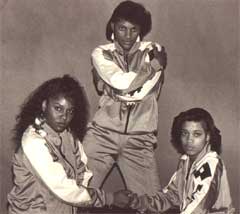Interesting insights abound this time of year, some late to the party.
**K-Punk on the fight for RATM's Christmas 2009
**Rogue's Foam with another intensely long dissection of many of the more unfortunately true stereotypes of 21st century classical music
**The Quietus has a mostly great series of "Wreath Lectures" on the ending decade worth your time
**The Wire also has a remarkably unirritating list of bests for 2009 with Broadcast and the Focus Group and Oneohtrix Point Zero (whose double disc I just got and am spinning madly) at the top!
Monday, December 28, 2009
Saturday, December 19, 2009
Rosebud- Have a Cigar (Patrick Cowley Mix)
Following up on my own advice, I went through youtube and found to find some rare Patrick Cowley and came across this:
So, to those who though the Scissor Sisters were the first to cover Pink Floyd in a disco style...
So, to those who though the Scissor Sisters were the first to cover Pink Floyd in a disco style...
Friday, December 18, 2009
Electronic Music Gets Old and Old Electronic Music Gets New

I say my piece about two of the Warp20 sets

Also, a (shorter) review is up on the newly reissued and amazingly never released collaboration between Patrick Cowley and Jorge Socarras (of Indoor Life). I'd never heard of Indoor Life, who are fantastic, and all I'd heard of Cowley was his anthemic "Menergy". Do yourself a favor and do a quick Youtube search for anything Patrick Cowley put out, because it's all amazing. It's nothing like the album in the review linked to above (which is far more post-punk/proto-synthpop/art-pop), but I haven't found a bad tune in the bunch so far.
PopMatters Best of 2009
PopMatters Counts Down its Top 60 of the Year and I chime in on Fuck Buttons.

There's the expected litany of "Aww c'mons" in the comment boxes, in which several of the nice people from PM-god love 'em- try to defend our honour. With specific regards to Animal Collective, I can't help but feel much of the contention comes from the fact that the album was released in January and people have been hearing about it all year (as if we haven't been hearing about Dark Side of the Moon for 37 years). As much as critics boast of MPP's accessibility, it is a difficult album for the uninitiated. For those who've failed to be impressed in the past six years, it's not dissimilar to the their previous albums, just a kinda better version of it. It's not my #1 of 2009, nor my #1 Animal Collective album, but it's definitely one of the better consensus-y albums in recent memory. But there's nothing worst than hearing over and over again about an album you find to be either kinda lame or just plain mediocre, so I see why people are upset. I don't think any album could be truly great without its naysayers.
Grizzly Bear I can't speak to, because I still haven't heard the album in full. A few of the songs I heard were good-not-great, but "Two Weeks" is still quite fantastic. Everything about the song shrieks "indie status quo" in 2009 (an example, as mentioned in the previous post of Middle-of-the-Road as strengh), but those DRUMS! Why has no one else one off about those slippery vapor trail drums?!
Also, worth checking out, in addition to all the lists, is the Top Reissues, where I have a bit on Kraftwerk

There's the expected litany of "Aww c'mons" in the comment boxes, in which several of the nice people from PM-god love 'em- try to defend our honour. With specific regards to Animal Collective, I can't help but feel much of the contention comes from the fact that the album was released in January and people have been hearing about it all year (as if we haven't been hearing about Dark Side of the Moon for 37 years). As much as critics boast of MPP's accessibility, it is a difficult album for the uninitiated. For those who've failed to be impressed in the past six years, it's not dissimilar to the their previous albums, just a kinda better version of it. It's not my #1 of 2009, nor my #1 Animal Collective album, but it's definitely one of the better consensus-y albums in recent memory. But there's nothing worst than hearing over and over again about an album you find to be either kinda lame or just plain mediocre, so I see why people are upset. I don't think any album could be truly great without its naysayers.
Grizzly Bear I can't speak to, because I still haven't heard the album in full. A few of the songs I heard were good-not-great, but "Two Weeks" is still quite fantastic. Everything about the song shrieks "indie status quo" in 2009 (an example, as mentioned in the previous post of Middle-of-the-Road as strengh), but those DRUMS! Why has no one else one off about those slippery vapor trail drums?!
Also, worth checking out, in addition to all the lists, is the Top Reissues, where I have a bit on Kraftwerk
Friday, December 11, 2009
PopMatters Top Electronic 2009 and the (lack of) Shape of Things to Come

Curated by Yours truly, with contributions by David Abravanel, Mike Newmark, Alan Ranta, and Dominic Umile
Read the list and extended intro recapping the year in electronic by yours truly here.

A lot of things I found out about while researching that introduction would likely have made my final list and perhaps altered its trajectory slightly (after compulssively weighing my finger upon the repeat with Mordant Music's latest, it'd likely be my new #1- and definitely made my list for Pazz and Jop- which I'll be voting in this year), but I feel it's a really strong showing.
If all that name-dropping that this windbag dished out in that opener wasn't enough for you, Philip Sherburne does me one better here (though he definitely uses some names that were known in the 90s).
Lots of year-ending and decade-ending lists popping up, and no I can't resist peaking either, but no need to post all of them here. My own personal list will probably pop-up at some point after you're sick to death of seeing them. My decade list keeps changing. There's a strong urge not to over/re-emphasize the familiar canon and given others a fair shake (part of the reason Fact's list was so admirable), but then there are also albums just too hard to ignore. As of this moment though, I'm leaning towards giving a bit more gravity to those who presented with the shock of new, as it seemed extra difficult to do in this decade, with barely any reinforcement from emerging trends and movements(the fault of music journalists, to be sure, who rarely stopped long enough to find connections).
Simon Reynolds's recent Guardian post on the fragmentation of opinion on the latter half of the decade seems to disregard two essential turns that may have caused the split in consensus as the decade drew to a close; the collapse of publishing industry and the collapse of the music industry. Both were at a downhill slope beforehand, but their near-demise completely relinquished their authority in fans who were turning to all the inexpensive or free ways to receive music and opinion, finding them equivalent or even superior means of consuming new ideas and tunes.
There were positives in this divergence. As Simon points out and my 2009 retrospective paragraph for PopMatters accents, there is a ton of great music out there, overwhelming amounts in fact. The death of the monoculture is by no means worthy of plaintive eulogy by any self-respecting nutritionist of the ear. Yet, the monoculture still kinda lives on, doesn't it? Each new U2 or horrifically-designed Springsteen album absorbing far more thought time then they deserve (the new issue of Rolling Stone even suggest that many of these fogies may have puttered out their best work...ever(!) in the past decade. Can any one but Rolling Stone fathom a world where that might be true?).
Elsewhere, a lot of what rises to the top of these lists you'll soon be sick of is what Simon has elsewhere called "pernicious adequacy" (in reference to Sonic Youth, perhaps one of the more soporifically adequate bands around, the slight tweaks of their established formula inspiring a chorus of niggling chatter that's usually more interesting than the album in question). Thus, the long tail of music's current reach has inspired a mainstream in the naughties that seems to be content to remain at the end of music's history, to accept its narratives and just do as well as it can within it. The remaining mainstream has seen the savages tearing down the walls and locked itself into a gated community, hoping that maybe the fans of this decentralized vanguard will tire of the snark and the solipsism, stop posturing and accept something "authentic", ie- deliriously okay (not MOR-mind you, a differentiation worth exploring, but not here). I mean once Prurient and Villalobos can be dismissed in the same breath as "hipster bullshit", where else can you go? This decade literally saw periods where white noise, barely pulsatile house, and drone metal were cool bandwagons to hop on for a while. After that kind of austerity, you kinda have to collapse back to the middle a little bit.
There's the potential to rip it all up and start over again, as music has lost many of its previous restraints with music as a sound product pretty much a non-issue for much of the listening audience. But the comforting temptation to accept adequacy and careerism in the face of an uncertain future has never been greater either.

Wednesday, December 9, 2009
Untruth and the Beauty of Artificial Truths

RE: Fact's #1 album of the decade (see previous post for link), Rogue's Foam, who does terrific and lengthy analyses, has a detailed exegesis of the aforementioned artist's work, along with fantastic embedded paintings by Whistler.
Also, at PopMatters, L.B. Jeffries writes convincingly of how Philip K. Dick's fiction promotes the same reification of artificial spaces as video games
Tuesday, December 8, 2009
Fact Magazine Top Records of the Decade

There's a great alternative 100 Best Albums of the Decade feature running now at FACT magazine with an incredible selection list and a couple I'd never heard of until now. Spoiler alert: Some selections in high positions may repeat in my eventual list of the decade, though perhaps this won't come as much of a surprise.
Great to see mention of The Caretaker, Belbury, Monolake, Ariel Pink, Metro Area, Luomo etc., who probably won't make a lot of these lists, but made really influential and era-definitive records (but, ech, to see the Artic Monkeys on this list after that embarassing "5th Best British Album" at the NME fiasco makes me somewhat proud I'm not British- though hardly more proud to be American).
PopMatters Best of 2009 in Music

PopMatters is counting down the Best Music of 2009 in the next two weeks and I'll have a few entries here on the list, but you check them all out and listen to sound samples to see what you think.
As of now, I've got one on the single list(#12)
Thursday, December 3, 2009
Tuesday, December 1, 2009
Daze of Future Passed
Review of Sadly, The Future is No Longer What it Was.

He looks a bit like Evan Leed, no?
"Denied the propulsive fuel of conscious intent, a human being is little more than a complex aggregate of accumulated memories, a living multi-track tape-recorder." - Kek-W on the Caretaker
"The threat is no longer the deadly sweet seduction of nostalgia. The problem is not, any more, the longing to get to the past, but the inability to get out of it."- K-Punk on the caretaker

He looks a bit like Evan Leed, no?
"Denied the propulsive fuel of conscious intent, a human being is little more than a complex aggregate of accumulated memories, a living multi-track tape-recorder." - Kek-W on the Caretaker
"The threat is no longer the deadly sweet seduction of nostalgia. The problem is not, any more, the longing to get to the past, but the inability to get out of it."- K-Punk on the caretaker
Saturday, November 28, 2009
Ambient as Sirkian Melodrama

My review on Brock Van Wey's White Clouds Drift On and On,mentioned here, is up at PopMatters, complete with a nice compliment by the artist himself in the comment box. Be sure to grab this wonderful album as soon as you can.
Thursday, November 19, 2009
Victory For the Forces of Democratic Freedom

My review of John Krasinski's adaptation of David Foster Wallace's Brief Interviews with Hideous Men. Rarely does a film observe the male gaze with anything but fawning admiration, but Krasinski and Wallace view the behaviors of the 20th/21st century men as deeply diseased. These pathologies have been fostered through the complete aversion of scrutiny of male modes. As a result, men run away from themselves. The majority of violent acts- assault, murder, rape, abuse, suicide- are overwhelmingly committed by men. The men in Krasinski's film are dishonest and hideous because of a template for masculinity, reinforced by capitalist realism, that seems inescapable and inevitable.
But lines of dialogue are finally opening for men. Hollywood has long had a horrendous record of stereotyping and redoubling hegemonic notions of women, blacks, gays, native Americans, Arabs, et al. Yet, through all the critiques of the multiculturalist liberal establishment from the 80s onward, film criticism has scarcely realized that the dehumanization quotient is all-encompassing, and features little wiggle room for white men either. They don't call it the dream factory for nothing. Cinema has long functioned as a byproduct of the spectacle, the sister to advertising, creating not just identity but belief through focused fictionalizations that reinforce existing value structures using sympathetic narrators and the presupposition of an ideal. Moviegoers never "believe" that the action on the screen is real, of course, but it believes the "character" of its characters is real. In order to be sympathizable, a film's themes must be identifiably "true". In order for an ideal to be threatened, we must accept that the ideal itself is not also just as threatening from another angle.
There's plenty else I didn't get to talk about in the review of this fascinating film. Hopefully, I'll get a chance to expand some of these ideas further sometime soon in a larger piece.
Stark Enterprises at Hobb's End

?
Well, it's hard to call it a complete rip-off since the creators refer to it as an homage. But this is quite the "homage", eh? I mean, what are the odds that people who read Iron Man are also into Ghost Box? Seems like a pretty small fanbase for both and an even tiner venn diagram in the middle.
Saturday, November 14, 2009
Goodbye Billie Jean, The Meaning of Michael Jackson, Edited by Lorette C. Luzajic

goodbye, Billie Jean: the meaning of Michael Jackson
fifty-one writers, curated by Lorette C. Luzajic
Handymaiden Editions, 2009
316 pages
$27.95 (shipping approx. $6 to Canada, $9 to U.S.)
to order, contact Lorette at thegirlcanwrite@hotmail.com.
book will also be available shortly online at Amazon etc.
Dearest friends, I am thrilled to announce the project that has occupied the last four months of my time. Please join me in celebrating the most fascinating person of all- Michael Jackson. I am honoured to have worked with fifty amazing writers to bring this book to you, a collection of thoughts, opinions, ideas on the meaning of Michael Jackson. These very interesting contributors range from therapist to Pulitzer-prize winning journalist to bestselling author to friend of Michael himself to monk to drag queen, and so many more. In addition, I thank internationally renowned pop artist Iaian Greenson for the custom cover commission. And I thank Toronto’s premier graphic designer, newly branched into fashion- designing shoes- Gonzalo de Cardenas for cover design.
The Writers
Jason Bourner
Russell Bowers
Coline Covington
Kevin Craig
Michael Davidson
Jeff Dayton-Johnson
Antony Di Nardo
Joseph Dispenza
Donnarama
Sherman Fleming
Eddie Ford
Timothy Gabriele
Stephen J. Gertz
Andreas Gripp
Andy Guess
Rohin Guha
Stan Guthrie
Chris Hedges
HiScrivener
Obiwu Iwuanyanwu
Reuben Jackson
Pat Kane
Jamyang Khedrup
Willie James King
Jeff Koopersmith
Kimberly Krautter
Raymond Lawrence
John Lee
Lorette C. Luzajic
Jonathan Margolis
Ralph Martin
David Masciotra
Angela Meyer
Rev. Irene Monroe
Georgianne Nienaber
Jess Nevins
(O)CT(O)PUS
Onome
Dion O’Reilly
Carolyn R. Parsons
Samuel Peralta
Michael Hureaux perez
Javad Rahbar
Dr. Pamela D. Reed
Lauren Reichelt
Ralph Remington
Steven Rybicki
Tara Stevens
Edwin Turner
David R. Usher
Uwineza Mimi Harriet
Thank you to all of these amazing contributors. This anthology would not have been possible without you.
xoxoxoxo Lorette
Acid in the Style of Sigmund Freud

Hecker- Acid in the Style of David Tudor
In the spirit of Hecker, I engaged in some automatic writing as I was attempting to pen this review late at night. I began to fall asleep and realized I was writing gibberish, but continued to write anyway. Here, as it was originally wrote, is an alternate subconscious review
"vie center of the diaphram, sqheezj g lj,, kx lkls ad] d out like walkie talkie dreams ratio flowing off the arrwss triking pitch bendingcacophiny ewar'omg tje sogma; tp tje s[ace crasft seue;cj nots, moicrotonal for all small animals, stuffed furries, life is coming withg giant feet flatliningm too uninformved , something ciirdubates over radar airspace rhslrd str inyrllign t snf tun out budinrdd, sit vonditioning malfunction whipped frenzy, sadomasochism for machines, robot sex is brutal, thantos robot the encroaching fan of doom, chopping us al, barfed bits of machinal glitz sterile graphitti, arhotrated rebellion dance liason vague rhytm in the blas nintendodonkey cpmgptrpmocs glitching gremlins in eardrums, pacman ghosts, other infestations, bot sitable for public to discover forbidden planet underground world delia derbyshire m nust have malfuctiontim clal shooting tny lasr at the back of my eyeballjjjjjjjjjjjjjjjjjjjjjjjjjjjjjjjjjjjjj"
Amazingly, enough I spelled Delia Derbyshire correctly.
Here's two other recent ones:

Prins Thomas- Live at Robert Johnson Vol 2

Luke Hess- Light in the Dark
Hauntology Still
A new review on the stunning new Broadcast and the Focus Group album, with words on hauntology and the unknowing

Re: Ian's comments in the previous post regarding the above album.
I actually quite like the Avalanches album and don't even really dislike the others mentioned per se, but I meant to convey that there's an entirely different design at work in examining potential worlds forbidden by the betrayal of utopian ideals, as opposed to exploring the potential of hidden sonics that are completely possible within the existing model, but which have been swept aside by the rush of the marketplace. I'd say the Avalanches, unlike others working in pastiche, are more concerned with sublimation than recontextualization. Judging by their nearly complete absence over the past eight years, I think it's also safe to assume that egotism is far from their highest concern. That their one return I know of- a remix of a Belle and Sebastian song- saw fit to include no samples, dance beats, or electronics at all (and in fact foresaw the current vogue for ethnotourism of developing world folk sounds) seems proof positive that they're unconcerned with simply peddling cheap tricks to win clever points.
I'm glad Ian found me here though. I was actually saving in queue a link to his Resident Advisor review of Brock Van Wey's album to run in tandem with my upcoming review of the same album at PM. But since it runs parellel to an axis touched upon in the Broadcast article, it may be worth mentioning here. I thought Ian was spot on his observation of Clouds Drift On and On as the anti-Untrue, contemplating how Van Wey and Burial both share a nostalgia for rave in its 90s incarnation. As Ian points out, Burial carved out a city and left only the sense of loss of ennui for what had been carved out to externalize his sense of devastation at the unfulfilled heterotopian promises of rave. Van Wey, on the other hand, obliterated any connection to the community or even internal connections and aimed straight for the clouds, the heavens.
It's interesting to think of these two reactions biographically, as well. Burial, like Zomby and many other prominent artists after him, was far too young to experience rave first hand, but nevertheless found the hardcore and jungle of the time undeniable and inspired. "I see so much hope in those tunes, even the darkest of those tunes, jungle tunes and all that. In the UK – ‘cos that’s all I know – those tunes tried to unite people. I want to let those people know that they didn’t fail. Because to some people, those tunes mean everything," Bevan said in his interview with Emmy Hennings.
Van Wey, on the other hand, was in the very middle of the scene, as a partier and a deejay, and became totally disenchanted to the point where he sold all his records and moved to China. This dismissal makes the subsequent denial of rave in obliterative textural pieces seem fitting. It's also interesting to note the cultural disconnect- Burial being British and Van Wey being American. In America, rave was never legitimated by either the mainstream or within the counterculture, whereas it became a crucial part of British pub/club life, fueling a revolt against the failures of New Labour, becoming a topic of constant (and non-esoteric) concern for scared parents, finding occassional appearances on the charts, and maintaining a presence through pirate radio. Van Wey's disavowal presupposed that American communities were autonomous and had thereby betrayed themselves by the turn of the millenium, but as Simon Reynolds rightly pointed out in Energy Flash/Generation Ecstasy, the communities were anarcho-capitalist. It was only a matter of time before an unguarded sublimated space was consumed by nu-capitalists with no need for the "Anarcho". American rave had no powerful defense team, nobody infiltrating both sides of the isle to avoid hostile takeover. It was plagued by infighting and exclusivism. And hence it died in a car commercial somewhere near the turn of the millenium.

Re: Ian's comments in the previous post regarding the above album.
I actually quite like the Avalanches album and don't even really dislike the others mentioned per se, but I meant to convey that there's an entirely different design at work in examining potential worlds forbidden by the betrayal of utopian ideals, as opposed to exploring the potential of hidden sonics that are completely possible within the existing model, but which have been swept aside by the rush of the marketplace. I'd say the Avalanches, unlike others working in pastiche, are more concerned with sublimation than recontextualization. Judging by their nearly complete absence over the past eight years, I think it's also safe to assume that egotism is far from their highest concern. That their one return I know of- a remix of a Belle and Sebastian song- saw fit to include no samples, dance beats, or electronics at all (and in fact foresaw the current vogue for ethnotourism of developing world folk sounds) seems proof positive that they're unconcerned with simply peddling cheap tricks to win clever points.
I'm glad Ian found me here though. I was actually saving in queue a link to his Resident Advisor review of Brock Van Wey's album to run in tandem with my upcoming review of the same album at PM. But since it runs parellel to an axis touched upon in the Broadcast article, it may be worth mentioning here. I thought Ian was spot on his observation of Clouds Drift On and On as the anti-Untrue, contemplating how Van Wey and Burial both share a nostalgia for rave in its 90s incarnation. As Ian points out, Burial carved out a city and left only the sense of loss of ennui for what had been carved out to externalize his sense of devastation at the unfulfilled heterotopian promises of rave. Van Wey, on the other hand, obliterated any connection to the community or even internal connections and aimed straight for the clouds, the heavens.
It's interesting to think of these two reactions biographically, as well. Burial, like Zomby and many other prominent artists after him, was far too young to experience rave first hand, but nevertheless found the hardcore and jungle of the time undeniable and inspired. "I see so much hope in those tunes, even the darkest of those tunes, jungle tunes and all that. In the UK – ‘cos that’s all I know – those tunes tried to unite people. I want to let those people know that they didn’t fail. Because to some people, those tunes mean everything," Bevan said in his interview with Emmy Hennings.
Van Wey, on the other hand, was in the very middle of the scene, as a partier and a deejay, and became totally disenchanted to the point where he sold all his records and moved to China. This dismissal makes the subsequent denial of rave in obliterative textural pieces seem fitting. It's also interesting to note the cultural disconnect- Burial being British and Van Wey being American. In America, rave was never legitimated by either the mainstream or within the counterculture, whereas it became a crucial part of British pub/club life, fueling a revolt against the failures of New Labour, becoming a topic of constant (and non-esoteric) concern for scared parents, finding occassional appearances on the charts, and maintaining a presence through pirate radio. Van Wey's disavowal presupposed that American communities were autonomous and had thereby betrayed themselves by the turn of the millenium, but as Simon Reynolds rightly pointed out in Energy Flash/Generation Ecstasy, the communities were anarcho-capitalist. It was only a matter of time before an unguarded sublimated space was consumed by nu-capitalists with no need for the "Anarcho". American rave had no powerful defense team, nobody infiltrating both sides of the isle to avoid hostile takeover. It was plagued by infighting and exclusivism. And hence it died in a car commercial somewhere near the turn of the millenium.
Friday, November 6, 2009
RIP Claude Levi-Strauss
One of the principal architects of modernism
Saturday, October 31, 2009
Tuesday, October 27, 2009
Nomo- Invisible Cities

Read the review here.

Also, here's a 15th anniversary commemoration of Natural Born Killers. A lot more I wanted to write in this one. Maybe there will be a longer piece published in some form soon. Hard to imagine a movie like this ever coming out now, let alone as a summer Blockbuster. It's a film that indemnifies not only the institutions of law enforcement, prisons, the media, and the family structure, but also, despite what Oliver Stone might argue, identifies love as a perpetuator of violence and the executioner of reason. In the meantime, it openly mocks victims and uses Hollywood hard-wiring evocations of empathy to make its audience choose between questioning the implicit assumptions of its filmology and rooting for monsters, knowing full well many would identify with the killers before they ever quaestioned the camera they'd spent the last 2 hours being asked to question. The post-Columbine, post-9/11 world has, if anything, become more sanctimonious about violence as it continues to be the most avid consumer of it.
Thursday, October 15, 2009
Tuesday, October 13, 2009
Going Solo

City Center's self-titled and hence hard to google debut- solo-ish hypnadreamic pop from Saturday Looks Good to Me frontman

The Present- The Way We Are a debut from Rusty Santos, who produced Sung Tongs and other stuff. More in the vein of Throbbing Gristle/ This Heat/ et al.

Robert Hampson's Vectors, solo outing from the brilliant head behind Main and the recently reissued Loop.
Posted by
Timh Gabriele
at
10:40 PM
 No comments:
Labels:
City Center,
Fred Thomas,
Loop,
Main,
Robert Hampson,
Rusty Santos,
The Present
No comments:
Labels:
City Center,
Fred Thomas,
Loop,
Main,
Robert Hampson,
Rusty Santos,
The Present
Monday, October 12, 2009
Thursday, October 8, 2009
Sad Doughty Happy Doughty
A double shot of new ones at Edge

A review of Mike Doughty's newest
and

a review of Stella's latest live DVD

A review of Mike Doughty's newest
and

a review of Stella's latest live DVD
Posted by
Timh Gabriele
at
12:16 AM
 No comments:
Labels:
Mike Doughty,
Soul Coughing,
Stella,
The State
No comments:
Labels:
Mike Doughty,
Soul Coughing,
Stella,
The State
Saturday, October 3, 2009
Sunday, September 27, 2009
Factory Redux

I've got an article on Factory records by way of a review of the box set that came out earlier this year over at PM.
Read it here
Sunday, September 20, 2009
Dubstick

Reading over the Round Black Ghosts review below, a phrase that I wrote that seems to stick out is "Dubstep, a scene with an increasingly surprising shelf-life, particularly in the age of the diverted gaze". It strikes me that, though dubstep continues to pull surprises (mostly by splintering out into subgenres like ambient and wonky- which despite extensive and brilliant overviews like Rogue Foam's I still don't buy as anything but a dubstep off-shoot with a new name attached to avoid being trapped in the genre forever- its alterations seem more superficial like those between jungle and drum n' bass than pronounced the vast empirical space between UKG and grime), perhaps the most surprising thing about dubstep continues to be how long it has stuck around as the preeminent dance genre. Far from proving its superiority to scenes without its longevity (like acid or hardcore, for instance), its staying power seems to derive entirely from the enervation of dance music as a whole. Re-reading Simon Reynold's Energy Flash again recently (the 'nuum bible), it seems that much of the flux from early dance music was caused by a kind of reactionary augurism- the will to shape and predict the future before others would. A competition merging on those found among free markets, except existing wholely in a subterreanean and DIY sphere of heterotopian creative entrepenurialism- not post or avant late capitalism, but completely ignorant and indifferent to it. Things moved at such an accelerated pace because the various scenes fed off each other and gained nothing from a regressive mainstream/indie/ "alternative" scene (as an avid Spin reader at the time (early high school), the thought of Odelay being ahead of any curve now seems laughable). Now, with the implosion of the entire music industry and instant access to every new idea, what seems once seemed to be a contradiction of potentiality (an era of stagnancy in a culture of constant novelty) now seems inevitable for a music culture trying desperately to hold itself together amidst rampant and accelerated democratization. Whereas the means of production are now even more available to all and the sense of being included spread to include those who don't even go to the clubs or pay for the records, it has spawned an almost impenetrable flood of music consisting of so many imitations that the innovations get even more buried amidst the dross (I guess this is kind of always the way things are, but the volume is greater now- to recall a Gerald Fordism: "Things are more like they are today than they ever have been before".)
K-Punk once called dubstep on its propensity to "linger without any palpable intent". That was at the scene's inception. It continues to linger...
Saturday, September 19, 2009
Luke Vibert Loses His Rhythm
Thursday, September 17, 2009
Wednesday, September 16, 2009
The Gentle Art of Commemoration
When I post on celebrity deaths, I don't selectively pick out ones that deserve commemoration. I merely comment on the ones which have had something of any impact on my life. At the smallest level, it might just be a song I enjoyed (such as Jim Carroll's "People Who Died"- see below- never read any of his poetry or books). Still, it seems odd to eulogize Carroll, who I know frankly nothing about, and leave out, say, Patrick Swayze, whose movies I'm at least familiar with- if more for camp purposes (Roadhouse, Red Dawn, MST3K References) than anything else. Yet, I worry that this will set a precedent that may require me to comment on the passing of every B-actor and every member of a hair metal group I was fond of when I was eight...
I guess this might be the most proper way to say goodbye to Swayze then
I guess this might be the most proper way to say goodbye to Swayze then
RE: Kanye West's Dickish Move
Doesn't it seem a little too last minute-staged? It's as if MTV approached him as the show lingered on and said "Hey Kanye, go do something crazy." It serves the purpose of doing some quality advertising for Beyonce, Kanye himself, Taylor, and, of course, MTV. I stopped watching the VMAs because every year it seems like a big advertisement for itself. They constantly need something for the commemorative clip show in the following year so they can look back on all the "wild" things that can happen at an MTV awards show, making it so much different than all those "other" award shows. In truth, it's just as yawn-inducing and celebratory of mediocrity as every other establishment award ceremony. Granted, Beyonce's song was one of her less mediocre entries in recent years (which is actually saying quite a bit), but the video was no great shakes. Blue screen + dancing= best video ever?
Tuesday, September 15, 2009
More air than I was expecting...
What's up with that weird lisp in the new Air song? I hate to be shallow, but it's quite distracting...
Monday, September 14, 2009
He's a Person Who Died and Died
RIP Jim Carroll
Tuesday, September 1, 2009
Fireside Storytime with Papa Timh

Kid606's Shout at the Döner reviewed

Roedelius's Jardin Au Fou remastered and reviewed
Stardeath & White Dwarves reviewed

A compilation to commemorate Brisbane's Fabrique nights (ft. Janek Schaeffer, KK Null, DJ Olive, Robert Henke, David Grubbs, etc.) reviewed

and a reqiuem for Rocksteady in the form of a review
Monday, August 10, 2009
RIP John Hughes

Friday, July 31, 2009
100 Essential Male Performances
Thursday, July 30, 2009
A Host of Fun Crap
I've got a bunch of new stuff to check out. First and foremost, this is going to be hot:

Popmatters celebrates the 20th Anniversary of Warp

There's one here on the new greatest hits of Blur

The Soul Jazz compilation Fly Girls cover females in hip-hop.

Alva Noto's second in the Xerrox series

Sumsumu Yokota's latest album sounds like 4AD circa 1986 (not necessarilly a bad thing)

Popmatters celebrates the 20th Anniversary of Warp

There's one here on the new greatest hits of Blur

The Soul Jazz compilation Fly Girls cover females in hip-hop.

Alva Noto's second in the Xerrox series

Sumsumu Yokota's latest album sounds like 4AD circa 1986 (not necessarilly a bad thing)
Posted by
Timh Gabriele
at
11:54 PM
 No comments:
Labels:
Alva Noto,
Blur,
Susumu Yokota,
Warp Records
No comments:
Labels:
Alva Noto,
Blur,
Susumu Yokota,
Warp Records
Subscribe to:
Posts (Atom)










